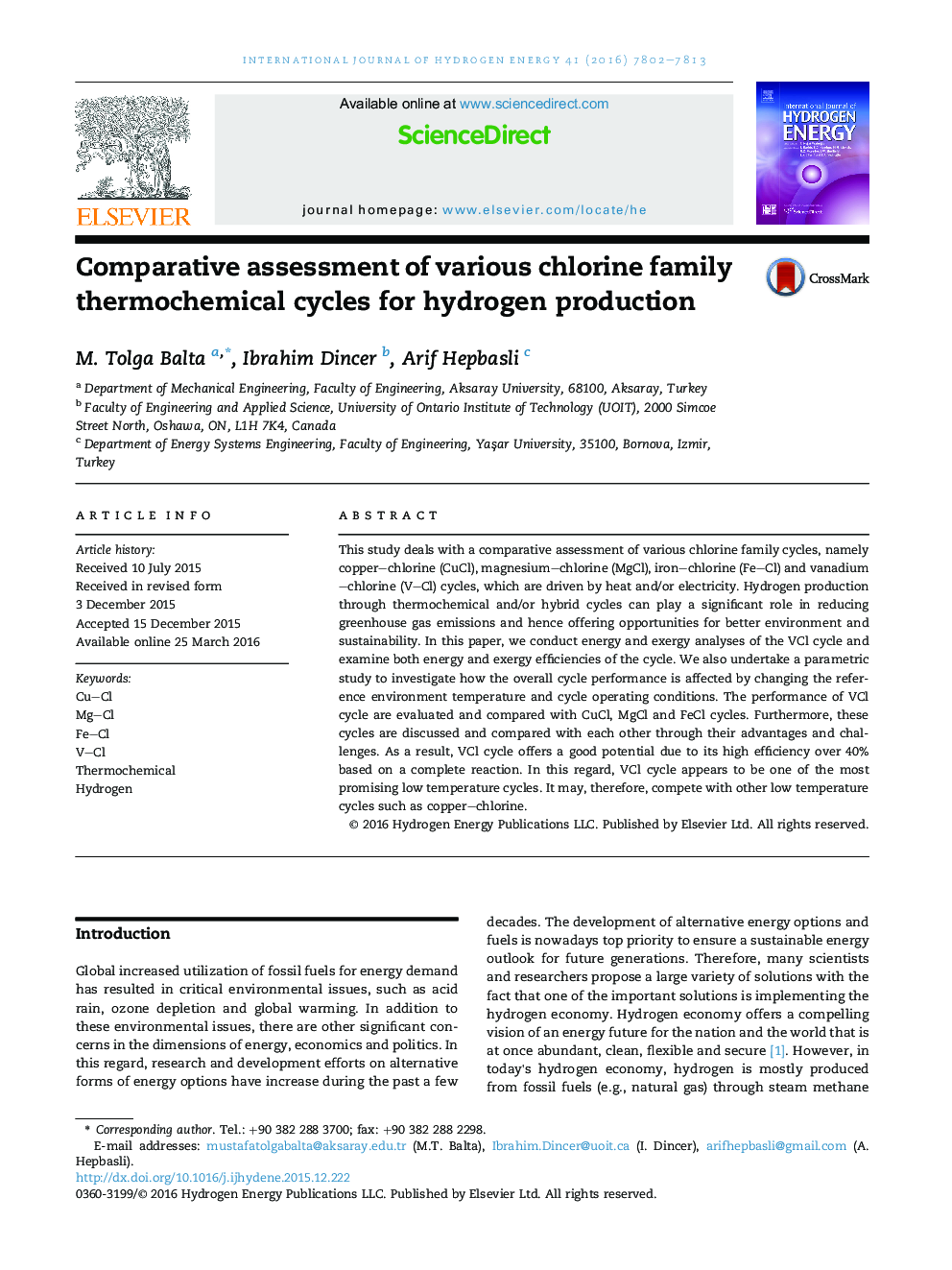| Article ID | Journal | Published Year | Pages | File Type |
|---|---|---|---|---|
| 1277274 | International Journal of Hydrogen Energy | 2016 | 12 Pages |
•This study deals with a comparative assessment of various chlorine family cycles.•The performance of VCl cycle are evaluated and compared with CuCl, MgCl and FeCl cycles.•VCl cycle appears to be one of the most promising low temperature cycles.•The overall energy and exergy efficiencies of the VCl cycle are obtained as 41.80% and 77.28%.
This study deals with a comparative assessment of various chlorine family cycles, namely copper–chlorine (CuCl), magnesium–chlorine (MgCl), iron–chlorine (Fe–Cl) and vanadium–chlorine (V–Cl) cycles, which are driven by heat and/or electricity. Hydrogen production through thermochemical and/or hybrid cycles can play a significant role in reducing greenhouse gas emissions and hence offering opportunities for better environment and sustainability. In this paper, we conduct energy and exergy analyses of the VCl cycle and examine both energy and exergy efficiencies of the cycle. We also undertake a parametric study to investigate how the overall cycle performance is affected by changing the reference environment temperature and cycle operating conditions. The performance of VCl cycle are evaluated and compared with CuCl, MgCl and FeCl cycles. Furthermore, these cycles are discussed and compared with each other through their advantages and challenges. As a result, VCl cycle offers a good potential due to its high efficiency over 40% based on a complete reaction. In this regard, VCl cycle appears to be one of the most promising low temperature cycles. It may, therefore, compete with other low temperature cycles such as copper–chlorine.
